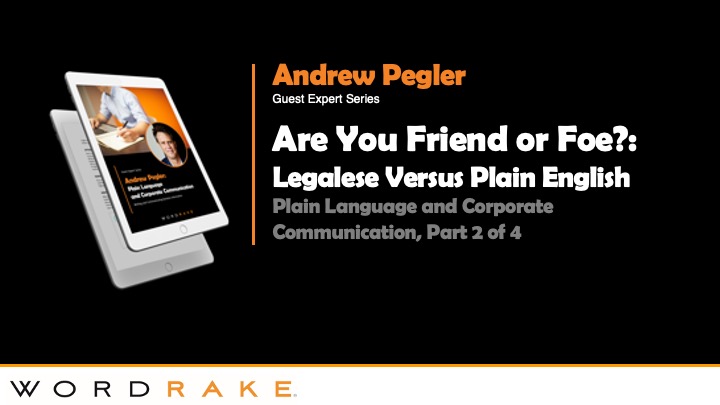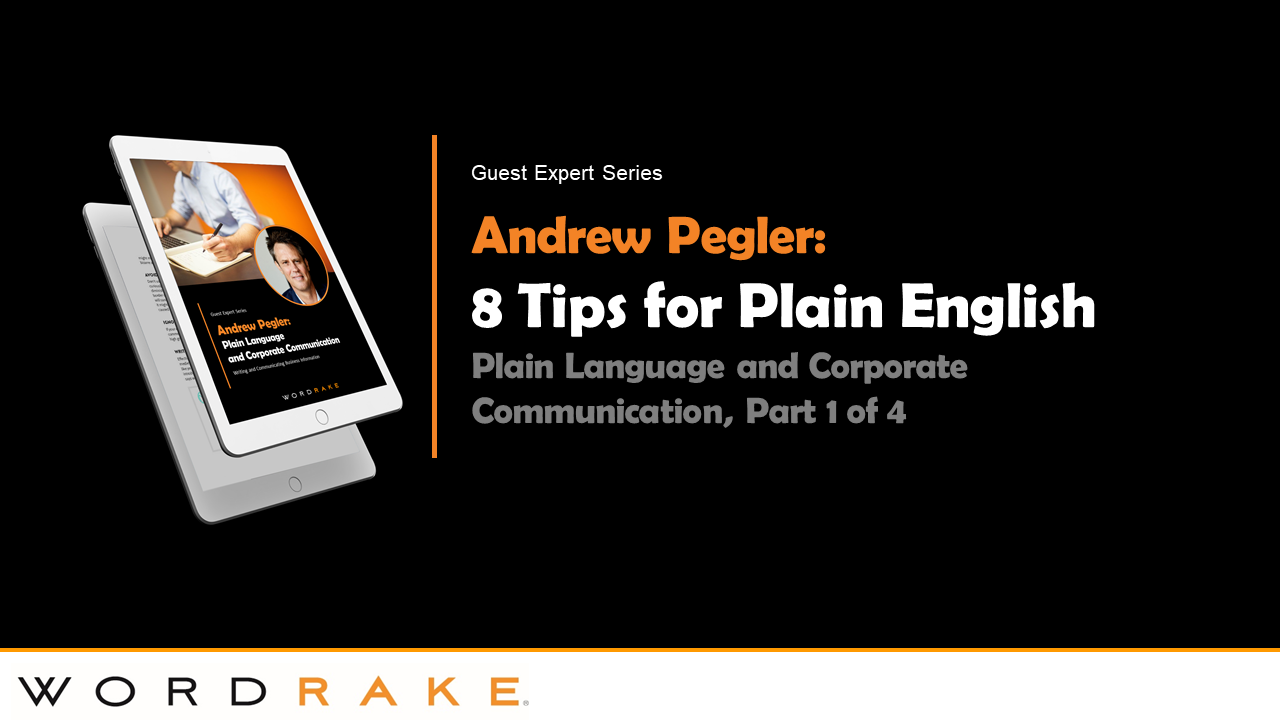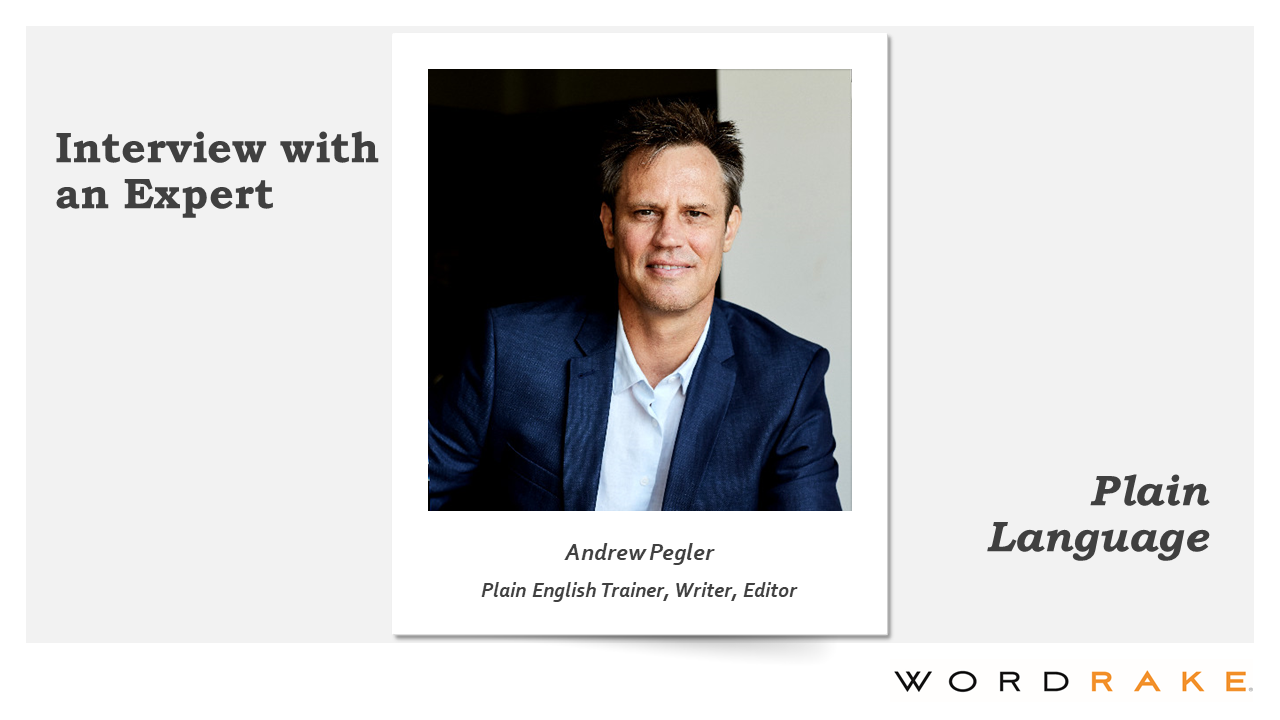When we first meet someone, we ask ourselves, “Is this person friend or foe?” Our subconscious—or conscious—answer decides what follows. That’s why the legal profession must be so careful when dealing with the public. Legal language is too easily felt as the language of an enemy—an alienating Petri dish for mistrust.
Whoosh… That’s us in a time machine to the early 1940s, amidst the howls of the Battle of Britain. Barking through the fog of war, we hear Winston Churchill. “I only want to hear and read plain English,” he froths at the trembling assembled. He ties the future of Britain to the clearest, simplest use of language. It must be understandable by all and obscure to none. He argues that time spent deciphering written English is not only precious, but an existential threat…
Churchill was probably not the first to use the term ‘plain English’ but his message was spot-on. People want information, letters, and advice they can understand and confidently act on at first reading. They don’t seek to be baffled.
Social media is helping democratize language. Acronyms and terms, once saved for back alleys and playgrounds, are front and center in daily conversation. Lol, OMG! There is no parallel universe where ‘legal speak’ escapes scrutiny. To stay relevant, the law must write and speak like real people do—not alienate clients via a gulf of ‘foreign’ expressions that kill trust. I ask you attorneys out there, “Will you choose plain-speaking or perplexing?”
Here’s some “legalese” we recently untangled. Addressed to a shop owner with no legal background, it showed her little consideration:
Before: As per your formal request for a review of your new retail lease on May 7 we must bring your attention to the fact that despite the significant amount of time that has elapsed since you made this request, we are yet to secure a copy of your original agreement which we will need to conduct this review. In mind of the fact that the deadline for resigning is imminent we would esteem it greatly if you would determine the location of, and furnish us with, the original lease agreement forthwith so that we may review as directed by you as soon as possible. After: On May 7, you asked us to review your new retail lease. We’re yet to see a copy. With the deadline for re-signing fast approaching, we need it as soon as possible.
The public largely believes legal folk should be treated with great caution. As the profession evolved mainly to help people understand their legal rights and to act on their behalf, this is disappointing. A callously drafted or rambling legal document adds to the burden of those who must make sense of it. It can lead to misunderstandings, misplaced expectations, and mistrust. Why not stick to the point?
Disclaimers are a classic legalese dumping ground. Here’s one we recently exposed to the antiseptic of sunlight:
Before: DISCLAIMER: This article is only intended to be a guide only with respect to some of the matters to consider when starting your own business and is not intended to be a substitute for obtaining legal or other expert advice. No responsibility is accepted for any action taken as a result of any material in this article. Information and advice relating to your specific commercial dealings can be obtained by contacting us.
After: DISCLAIMER: We don’t accept responsibility for any action taken after reading this article. It’s intended as a guide only. It’s not a substitute for expert legal advice. Contact us for more.
These doorstopper, foe-fostering insurance contracts needed urgent care—stat!
Before: A policy may be canceled by an insured person (the insured person) by providing the Company with a written notice of said cancellation. The serving of said written notice of cancellation is sufficient and will suffice in making effective the date of cancellation of the policy in the notice of cancellation. That being the end of the policy term, and hence its completion, the said policy will henceforth be cancelled.
After: To cancel your policy, write to Us outlining when you want it canceled.
Before: We agree to provide the Cover described in this Policy upon full payment of the gross premium as stated in the Schedule. If full payment of the gross premium as stated in the Schedule is not made, there is no Cover. Therefore, the individual applying for the Cover is not covered.
After: Once you’ve paid the gross premium in the Schedule, you’re covered.
Any law firm or legal department embracing plain English has a jump on its competitors. Clear communication goes hand-in-hand with the elusive and highly valued professional asset—trust. Be first to own the space. Thomas Edison once said, “Recognizing opportunity is difficult for most people because it goes around disguised in overalls, looking like hard work!”
The extra thought and care to write in plain English is worthwhile—you’ll earn your readers’ confidence. For a guide to improve the clarity of your writing, read my other article “8 Tips for Plain English.”
About Andrew Pegler
Andrew Pegler is Principal of Andrew Pegler Media Ltd, an editorial and design agency specializing in keeping it simple. He is an award-winning plain English editor and writer and plain English workshop presenter. Andrew holds a bachelor’s degree in communications and in economics. He also holds certificates in accounting, tax law, finance proofreading, editing, and public speaking. He is a regular presenter on plain English at conferences and summits in Australia and abroad.
Series on Plain Language and Corporate Communication
This is the second in a series of four articles on plain language and corporate communication by award-winning writer and editor Andrew Pegler. Give a good impression by using language that’s familiar and clear to your readers. With one click, WordRake can help you weed out jargon, unnecessary words, and overused phrases. WordRake editing software is available for Microsoft Word and Outlook on Windows, or for Microsoft Word only on Mac. You can try it free for 7 days.










